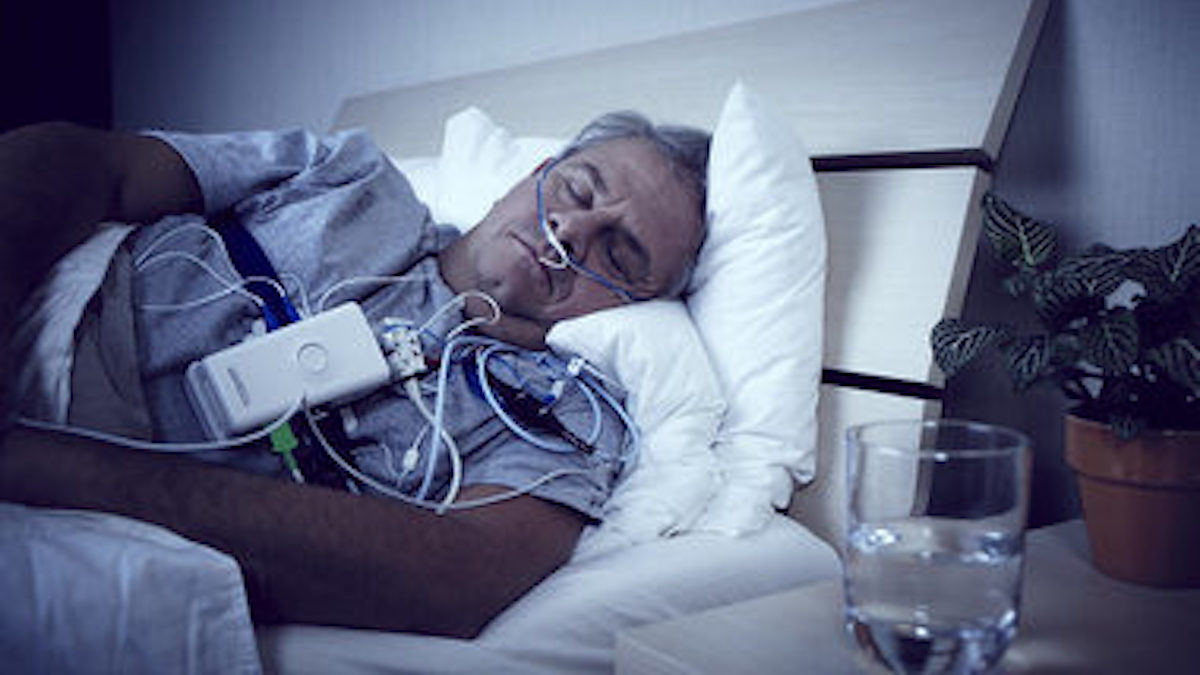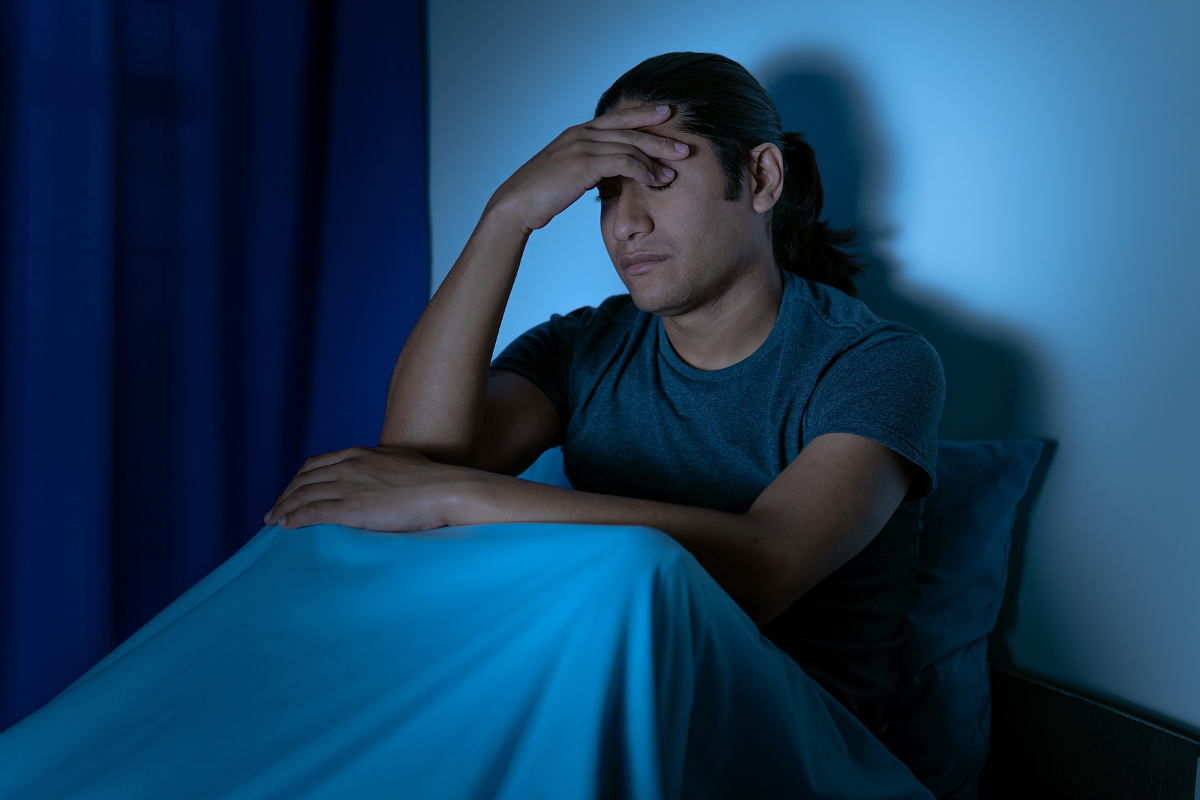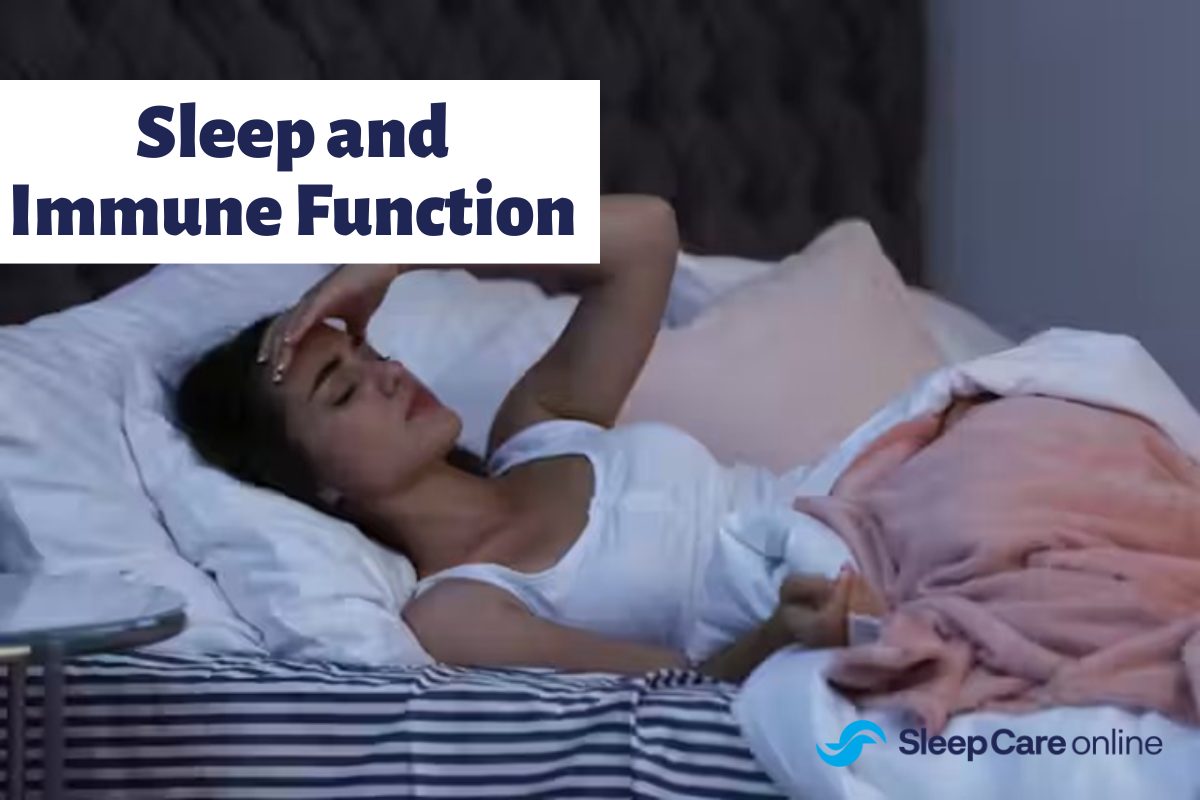Key Takeaways:
- Delayed Sleep Phase Syndrome, often referred to as DSPS, is a sleep disorder that affects the sleep-wake cycle by shifting it later than the typical sleep schedule.
- This sleep disorder impacts the ability to fall asleep and wake up on time, potentially delaying a person’s sleep schedule by at least 2 hours.
- DSPS can be linked to sleep apnea and potentially worsen the symptoms of it. Learn more in this article.
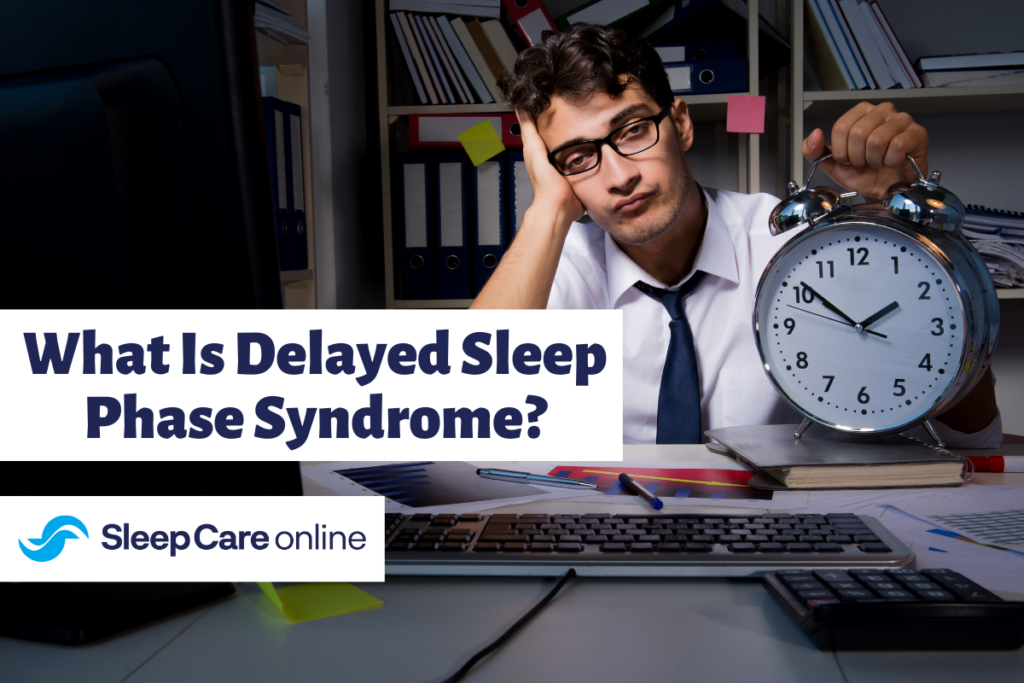
Sleep is an important part of our overall health. Most people may not realize that sleep loss impacts their health and that sleep disorders are a major health problem. Issues ranging from insomnia to sleep apnea rob over 50-70 million Americans of sleep.1
One common sleep disorder is delayed sleep phase syndrome (DSPS). This condition prevents people from falling asleep at their normal bedtime. Delayed sleep means less time in restorative deep sleep, which can leave a person drowsy in the morning.
There may be a link between DSPS and sleep apnea. Often the symptoms are similar, including disrupted breathing while trying to fall asleep.
Diagnosing sleep apnea first may be a step toward resolving DSPS. Home sleep apnea tests are one way someone suffering from sleep issues can find a solution.
Understanding Delayed Sleep Phase Syndrome (DSPS)
DSPS can reduce healthy sleep time by maintaining wakefulness, sometimes for several hours at bedtime. Unlike other sleep disorders, DSPS does not prevent sleep or interrupt sleep. Sleep is simply delayed.
The problem with delayed sleep is that it can disrupt a healthy circadian rhythm. Your circadian rhythm regulates the different stages of sleep in a 24-hour period. Each stage eases you into a deeper level of sleep until you wake up the next day. Aligning to this pattern helps you sleep better. When stages of sleep are delayed your overall sleep health and personal health are affected.
DSPS is most common among teenagers and young adults. About 5-10 percent of people with ongoing insomnia also show signs of DSPS.2
Symptoms include:
- Inability to go to sleep right away
- Difficulty waking in the morning
- Daytime drowsiness
- Difficulty with concentration and alertness
Do I Have Delayed Sleep Phase Syndrome? – Signs And Symptoms
Sleep disorders are often difficult to diagnose as the symptoms can mirror each other. For example, someone with DSPS may be misdiagnosed with insomnia. However, a person with insomnia has difficulty sleeping all night long, while someone with DSPS only has difficulty initially falling asleep. Not being able to follow a consistent sleep schedule can impact overall health.
Someone with DSPS may be less productive during the day due to a lack of restorative sleep. They can be less alert and experience drowsiness, even though they have slept. They just haven’t slept enough. While sleep disorders are different, they can be associated. DSPS can be linked to other sleep disorders such as sleep apnea.
The Link Between DSPS And Sleep Apnea
It is possible for someone with DSPS to also have sleep apnea. Sleep apnea can cause the airway to fall closed while asleep which can disrupt normal breathing and interrupt sleep.
- Obstructive sleep apnea (OSA) is the most common form of sleep apnea. It is caused by a relaxation of the throat muscles which obstruct the airway forcing sudden periods of wakening.
- Central sleep apnea is caused by the failure of the brain to send the right signals to the muscles that regulate breathing which lead to disrupted breathing.
- Mixed sleep apnea is a combination of OSA and central sleep apnea.
Disrupted breathing during the early stages of sleep may be a sign of sleep apnea. DSPS may be a result of a less severe OSA that disrupts breathing only while falling asleep.
Exploring the possibility of sleep apnea starts with an at-home sleep apnea test. Home sleep apnea tests can capture the critical data needed for a diagnosis including snoring intensity, oxygen levels throughout the night, and the duration of pauses in breathing, especially during the early stages of sleep.
Can Delayed Sleep Phase Syndrome Be Cured?
While there may not be a cure for delayed sleep phase syndrome, the condition can be managed to achieve healthier sleep. Treatments include some non-invasive therapies, lifestyle changes, supplements, and medications prescribed by your doctor.
If you experience what appears to be DSPS, it’s important to make sure you have a proper diagnosis. Use an at-home sleep apnea test to clarify that sleep apnea is not affecting your healthy sleep.
Delayed Sleep Phase Syndrome Treatment
Treatments for DSPS include:
- Light therapy which can help a patient adjust their circadian rhythm.
- Maintaining consistent sleep schedules and following healthier sleep hygiene
- Use of melatonin to help induce sleep earlier.
- Some prescribed medications which can help align a patient’s circadian rhythm.
Diagnosis through at -home sleep testing helps rule out sleep apnea so you can pursue proper treatment.
Seeking Professional Help for DSPS Diagnosis and Management
Sleep disorders should be taken seriously. Speak to your doctor about any sleep problems and about getting a diagnosis and treatment. Sleep specialists can help designate the type of sleep disorder you have and possible connections with other types of sleep disorders. They may also determine if sleep apnea is playing a role in your DSPS.
Lifestyle Strategies for Managing DSPS
Treatment is just one of the ways you can work toward healthy sleep. Following some lifestyle adjustments can also help you sleep better.

- keeping your bedroom a cool temperature
- taking a warm bath, drinking tea, or doing other calming activities to get your body ready for sleep
- avoiding caffeinated drinks, alcohol, and smoking too close to bedtime
- turning off electronic devices


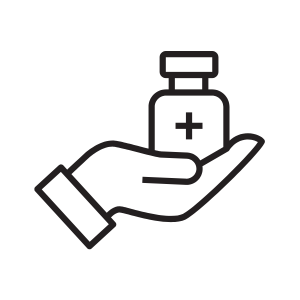
Read more about healthy sleep habits in this detailed article.
Conclusion
Delayed sleep phase syndrome can prevent you from getting the sleep that you need. Delayed sleep means less sleep, which can leave you drowsy during the day. At-home sleep apnea testing, like the one offered by Sleep Care Online, is one way to determine the root cause of your sleep problem. You can know for sure whether sleep apnea is playing a role in your sleep loss. Keep your doctor informed. Medical professionals can help you with understanding and diagnosing sleep disorders so you can get the rest you need.
References
- Institute of Medicine (US) Committee on Sleep Medicine and Research. Harvey R Colten, Bruce M Altevogt. Sleep Disorders and Sleep Deprivation: An Unmet Public Health Problem
- R Robert Auger, MD, FAASM, FAPA, DABPN Delayed sleep-wake phase disorder. October 2023.


